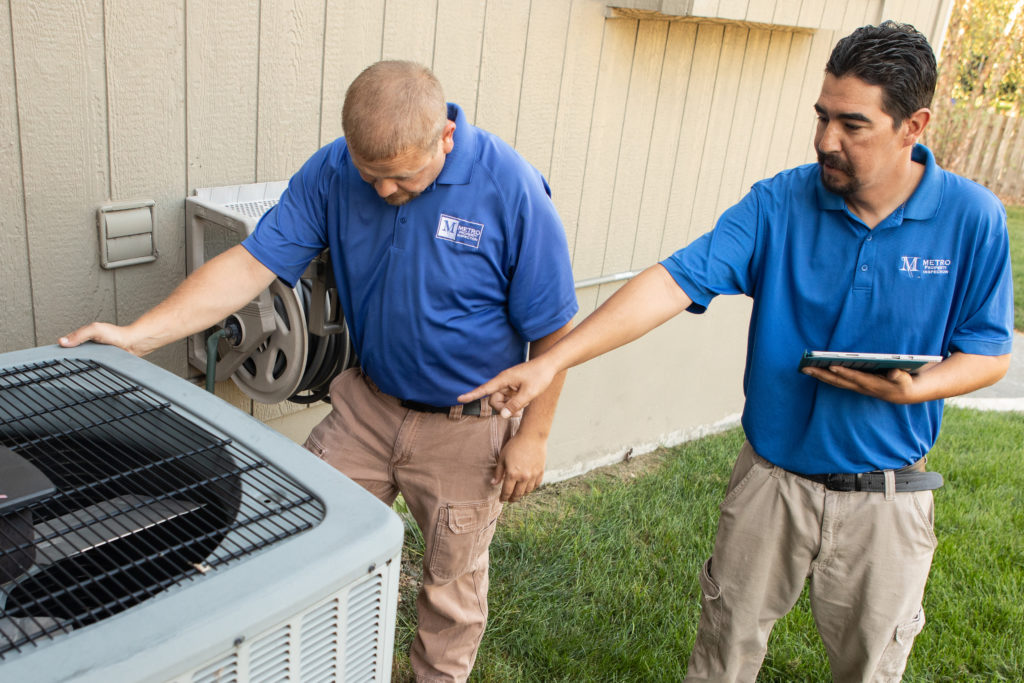It’s easy for new homeowners to assume that because they aren’t using their A/C during the colder months means there isn’t any maintenance to be done, but that’s not true. To keep your A/C healthy for the spring, winterizing your unit is incredibly important. This month we want to ensure all new homeowners understand why and how to best winterize their A/C units to prepare for our cold Kansas City winters.
During the winter months, water, ice, and other debris collect in and around your unit. If your A/C is not protected properly, these elements can clog, rust, and slowly deteriorate your unit. A/C units are costly to repair and replace, which is why winterizing each year is an important part of home ownership.

Step 1: Clean Your Unit
Throughout spring and summer, your A/C has most likely collected quite of bit of dust, dirt, and debris after months of operation. Cleaning your unit, both inside and out, is an important first step.
Use a wet cloth and run it over your unit. You’ll need to make sure that your A/C is completely dry before you continue winterizing, so cleaning during a warmer day will help.
After wiping your unit down, remove any debris found surrounding it. This can include sticks, leaves, and more. Removing this debris will discourage small animals from nesting in your A/C during the winter.
Step 2: Turn Off The Power
Before moving on, be sure to turn your A/C unit off. Even if you’ve never done it before, it’s simple! There is a physical on/off switch on the outdoor section of your unit, usually located under a metal or plastic lid.
Although it might be tempting, do not use the thermostat to turn off your unit. When a unit is turned off using the thermostat, it can switch back on whenever your home’s temperature rises. It is dangerous for your air conditioner to turn on during the winter, because water may get pulled into the coils and freeze your unit.
Step 3: Cover Your Unit
Before wrapping or covering your unit, be sure that it is fully dry. If water gets trapped under your covering, your A/C can rust throughout the winter. Once your unit is dry, cover it with a plastic or vinyl cover.
Covering or wrapping your unit will keep animals and debris from finding a home in your unused A/C, and will keep moisture and rust from damaging your unit.
Learning that your air conditioner has been damaged throughout the winter once summertime starts is the last thing you want. It can be expensive to get it repaired in time for the warmth. Avoid having to making repairs to your A/C unit by simply winterizing it this November.
